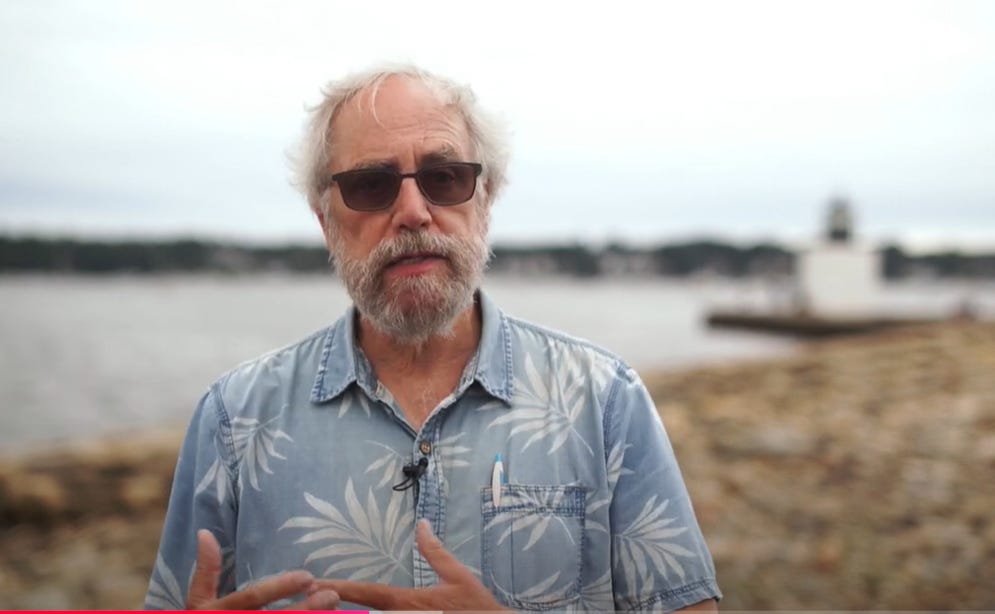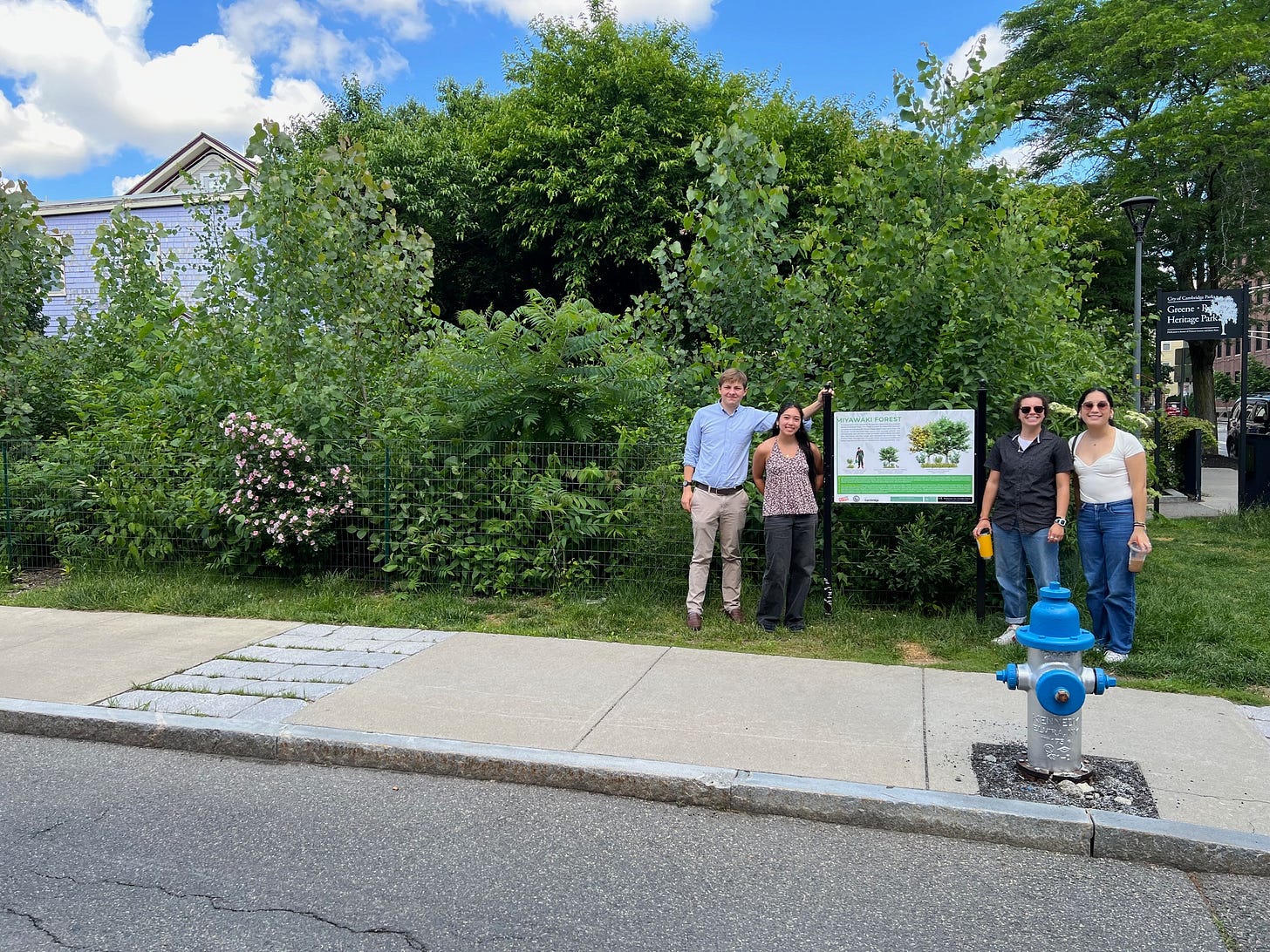Planting Miyawaki Forests to Restore Water Cycles to Save Right Whales
Rehydrate the Earth while decarbonizing the atmosphere
From Derby Wharf in Salem, Massachusetts, I talk about how people are acting to save right whales by planting high-diversity native woody plant pocket forests in cities to increase carbon drawdown from the atmosphere and build soil to hold water, benefiting local life and reducing ocean pollution.
During the last 25 years, phytoplankton productivity has fallen 65%, and copepod calorie values are falling. As a result, right whales must eat more for the same nutrition. The spreading of the herbicide Roundup has increased tenfold since glyphosate-resistant seeds were developed by Monsanto in 1996. Polluted stormwater discharging into the sea is likely causing more harm to right whales than is the increase in nutrient pollution and rising sea temperatures.
View my video: Planting Miyawaki Forests to Restore Water Cycles to Save Right Whales
East Cambridge Miyawaki Forest in Greene-Rose Heritage Park, 238 Broadway St, Cambridge, MA. A Cambridge Administration building once stood here. Birds stop by the approximate thirty-five different native woody plant species on their way to and fro Mount Auburn Cemetery in West Cambridge.







Thanks so much for your whale-saving work and for the education you provide us on ways to protect phytoplankton.